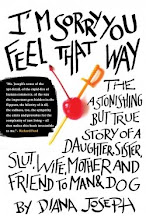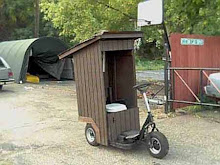This is a reflection on process. The writing process in general, and the process of writing this collection. They are one and the same. I have neither time nor patience nor space to offer comfort, encouragement, good cheer, or humorous anecdotes. Writing is an obsession both time- and mind-consuming. Little else provokes more aggravation. That is what you will find here: aggravation. There are no comfort zones. Those who write from comfort address only their ego, and egos love attention.
Once you have written all your stories (or poems, essays, etc.), you start again, and write anew. Those who write for awhile and then give up are left with resources they haven’t helped to destroy. Material (or Subject Matter) is used up, re-used, always-already destroyed and regained, reprocessed. Everything has been done. Nothing has not been left undone. This is very simple to understand. Stretching for pure originality in writing dooms you to frustration, at best; failure, at worst. If you have something to write, then write it. If you believe you have nothing to write, or nothing new to write, then you won’t write a word. And that’s okay with me.
I will focus on story-writing process. Stories require two basic attributes: Spine and Heart. First comes Spine, the logical structure (or framework) of sense. A story without a Spine is nonsense: when you read a Spineless story, you become lost, confused, frustrated, aggravated, annoyed, or so thoroughly amused by the bad writing that you will never again bother to read that particular author’s work.
Spineless stories have these and possibly other qualities: Character behavior seems unbelievable, ridiculous, absurd. Events happen for little or no apparent reason. Abstractions abound. Narrative focuses on redundancies, irrelevancies, everyday tediums. Narrative time runs out of control. The text contains numerous and obvious typos, glitches, unnecessary verb tense shifts, misspellings, and the like. When you read it, you have no idea what is going on.
I think of a story as a human body. Without a Spine, the body is paralyzed, almost useless. The human body cannot function without a Spine. (Stories do not have the luxury of wheelchairs, respirators, or physical therapists.) The human body can survive without arms and legs, without hair, without eyes, without a tongue, without sex organs; the human body can survive with only half of one lung, or with one half-functional kidney. But a Spine is a requirement. The Story’s text must be clear, without glitches or typos or bizarre constructions of grammar. The Story needs to make sense when read; characters can do things that make no sense, but in ways that make sense to the reader. Nouns and Verbs make sense to the reader. Simple sentence structures make sense to the reader. Stout Anglo-Saxon words make sense to the reader. Concrete images hold the reader’s attention. Clearly delineated time keeps track of events, and reinforces the sense of a world with laws and rules. The reader should not need to pause (to look up some obscure Latinate word, to computate a pile of adjectival phrases, to translate misspellings and other grammatical glitches). When the reader can read through without stopping, and afterward knows at minimum what is going on in the Story, then the Story has a functioning Spine.
The presence of a functioning Spine makes a story, but not a good story. The best stories have not only Spine, but Heart.
[Forthcoming: Heart . . .]
Subscribe to:
Post Comments (Atom)
A Slowly Growing List of Things to Look Forward To When You Have a Child
- Every day is either Christmas or Halloween or Birthday or Easter
- Leave those cats alone! They're going to scratch you and it will hurt
- You cannot lie under circumstances, but nor can you tell the literal truth
- Geez that kid is sharp
- Can I have cake? Can I have cake? Can I have cake? Huh? Daddy? Can I have cake?
- For the last time, stop asking me!
- Noticing the growth: taller and a bit heavier to carry
- Children's television shows
- Food. Wasted food
- Remembering that you once acted this way yourself
- Watching where the both of you are going
- The joy of hearing the word "fuck" being used experimentally, and justifying this experimentation by saying "Well they learn it eventually"
- TANTRUMS
- Sitting down together on the living room floor, a mess of blocks & cars & plush Care Bears strewn around you, discussing the complexities of each car's identity, its name, and why it is so humorous
- Having to take responsibility for someone else for a change
- More frustration than you're prepared for
- Wicked cackling
- Drawings of potato guys
- Learning about the world all over again
- Circular Logic
- Unexpected hugs and words put beautifully together out of context
- Waking up after 4 hours of sleep, and unexpectedly having to confront shit, in more than one place, including the carpet, a big toe, a butt, a bed, a toilet seat, and underpants




No comments:
Post a Comment